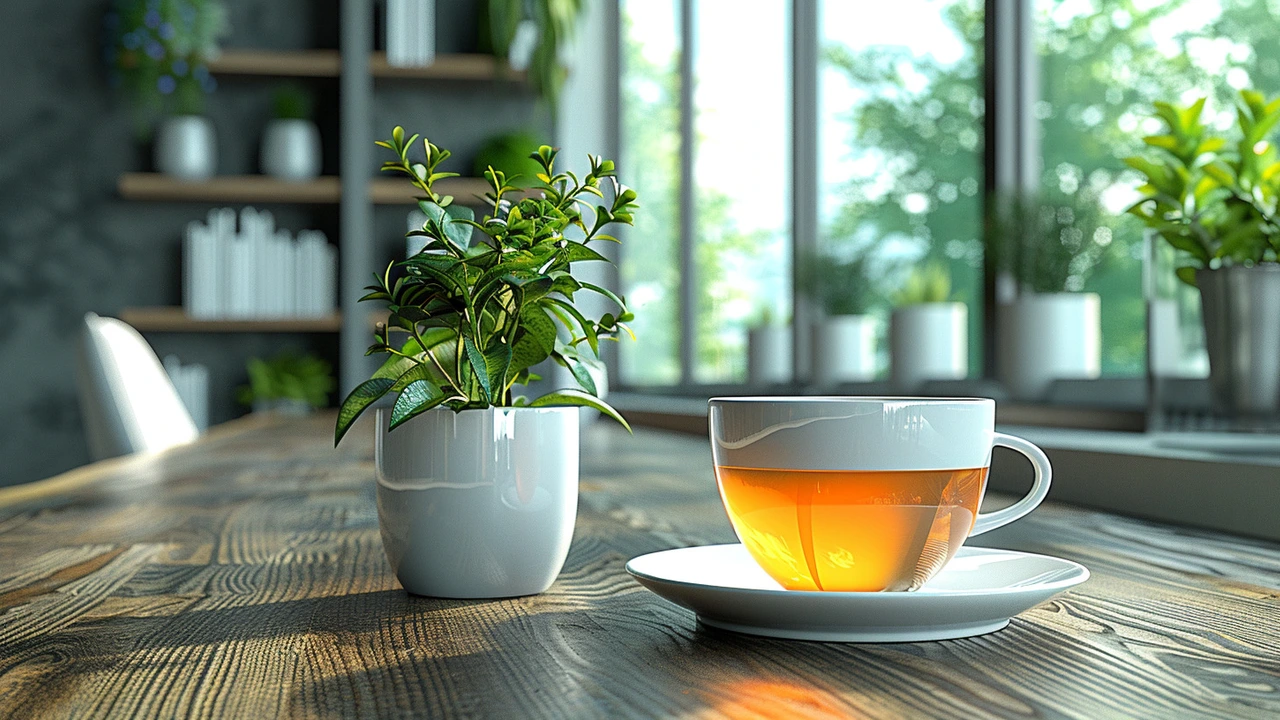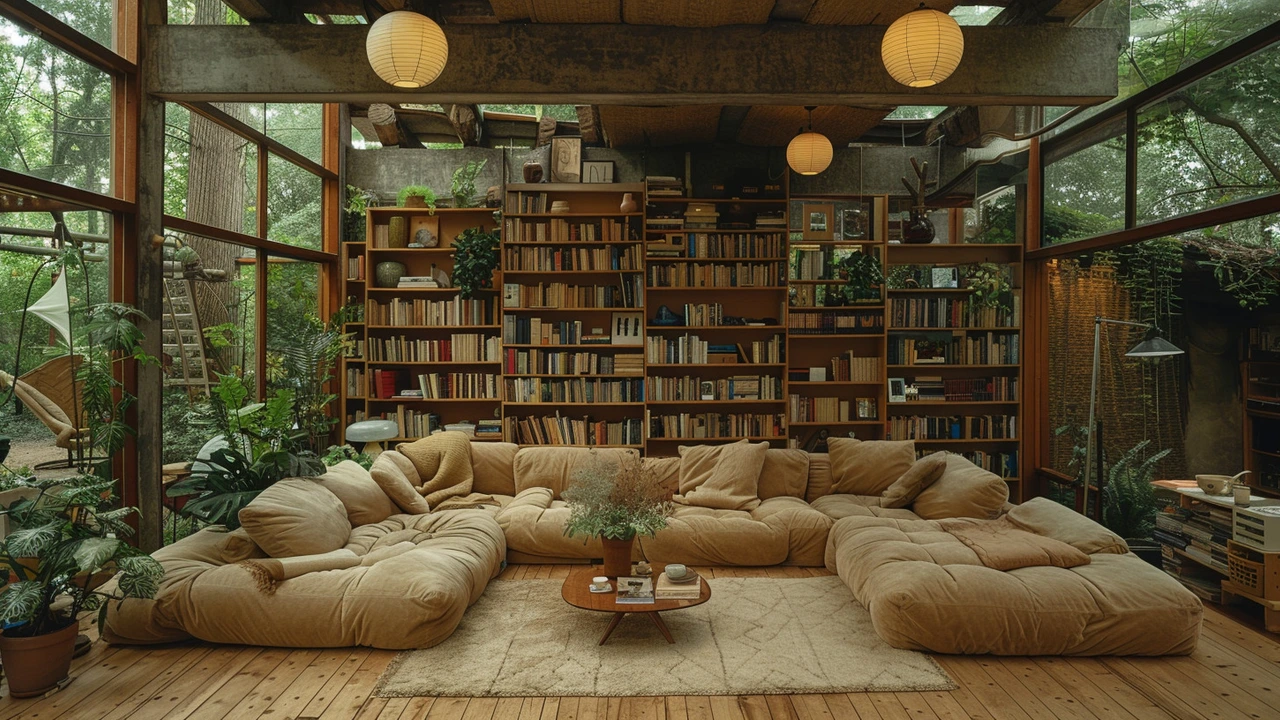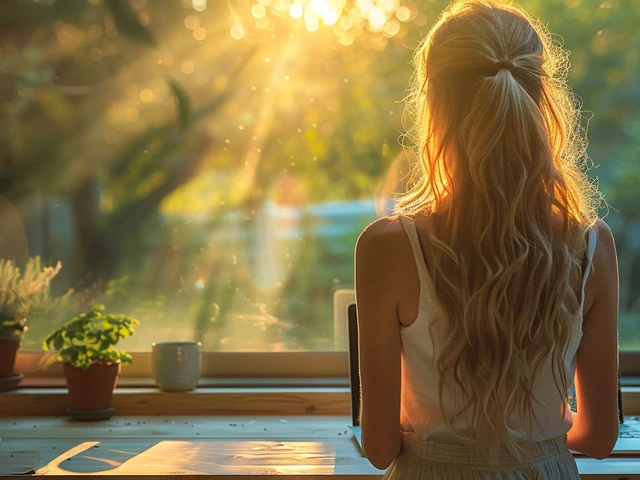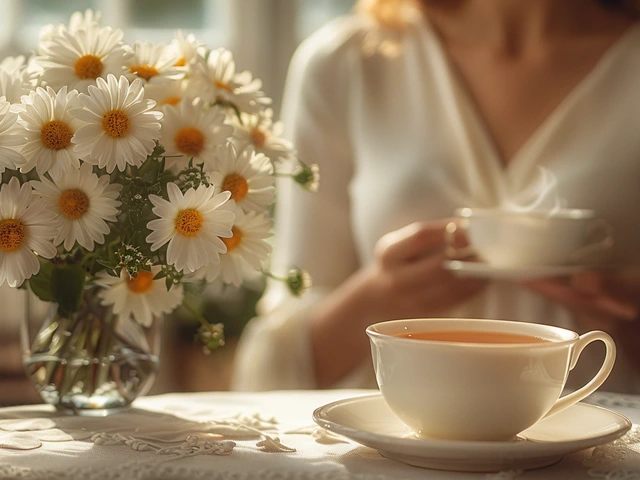In today's fast-paced world, minimalism is more than just a trend; it's a movement towards living a meaningful and intentional life. By focusing on what truly matters, minimalism allows individuals to eliminate excess and embrace simplicity.
Understanding the core principles of minimalism is the first step. It's about prioritizing quality over quantity and finding contentment in less. Minimalism can transform various aspects of life, from home environment to mental well-being.
Transitioning to a minimalist lifestyle isn't an overnight task. It involves evaluating possessions and habits, letting go of unnecessary items, and making mindful choices about future purchases. The benefits, including reduced stress and increased freedom, make it a rewarding journey.
- Understanding Minimalism
- Benefits of Minimalism
- Practical Steps to Declutter
- Sustainable Living through Minimalism
- Challenges and Tips for Maintaining a Minimalist Lifestyle
Understanding Minimalism
Minimalism, at its core, is the intentional promotion of the things we most value and the removal of everything that distracts us from it. This concept can be applied in various aspects of life, not just material possessions. With its roots embedded in ethical and aesthetic practices, minimalism encourages a way of living that is focused, serene, and meaningful. But what exactly does it entail, and how did it become such an influential philosophy today?
Initially, minimalism was a term used in the arts, particularly during the late 1960s, to describe movements in visual art and music where the elements were pared down to their simplest forms. The idea later evolved into a lifestyle choice advocating simplicity and purposeful living. Joshua Fields Millburn and Ryan Nicodemus, known as The Minimalists, say, "Minimalism is a tool to rid yourself of life's excess in favor of focusing on what's important—so you can find happiness, fulfillment, and freedom."
In the context of personal life, minimalism means intentionally choosing to live with less so that we can create space for more: more time, more passion, more experiences, and more growth. This doesn't mean living in stark settings with no possessions. Instead, it emphasizes keeping things that genuinely add value to one's life, whether they are items, experiences, or relationships. Minimalists strive to eliminate clutter, unsubscribe from the consumer culture, and focus on clarity and peace of mind.
One well-cited study from the Journal of Environmental Psychology noted that a cluttered home environment negatively impacts an individual’s ability to focus and process information. By decluttering and simplifying surroundings, people can significantly reduce their stress and anxiety levels. Minimalism’s growing appeal can also be attributed to the sustainability movement. By consuming less, we reduce our environmental footprint, making this lifestyle ecologically and ethically sound.
Individuals who practice minimalism often report greater mental clarity and emotional resilience. When we let go of excess physical and mental baggage, we make room for better health and well-being. A famous quote by the philosopher Henry David Thoreau encapsulates this idea well: 'Our life is frittered away by detail… simplify, simplify.' By adopting a minimalist approach, we can live more purposefully and deliberately, emphasizing experiences over material possessions.
In essence, minimalism intersects with many modern concerns, including mental health, environmental conservation, and the quest for happiness. It is a journey of constantly curating one's life and getting rid of what doesn't matter so we can focus on what does. By understanding the principles of minimalism, one can begin to embrace this lifestyle and its numerous benefits. Whether you’re looking to declutter your home or de-stress your mind, minimalism offers a path to a more fulfilling life.
Benefits of Minimalism
Living with less brings a multitude of benefits that go beyond mere aesthetics. One significant advantage of minimalism is the reduction of stress and anxiety. When surrounded by clutter, it’s easy to feel overwhelmed. By simplifying your environment, you create a space that promotes peace and clarity. Studies have shown that a clean and organized space positively impacts mental health. According to the Journal of Environmental Psychology, people with more organized homes tend to feel happier and more in control of their lives.
Financial savings is another compelling benefit of minimalism. When you decide to buy less and focus on quality, you end up saving money. Think about all the items you’ve bought on impulse and never used. Minimalism encourages mindful spending, leading you to invest in things that truly matter. Over time, these savings can contribute to a more secure financial future. It can also enhance your sense of financial freedom and reduce the pressure to keep up with consumer trends.
Minimalism also fosters better relationships. When you aren't preoccupied with maintaining and organizing numerous belongings, you have more time and energy for the people you care about. This shift in focus can improve your interactions and strengthen bonds. Imagine sharing a clutter-free space with loved ones and focusing more on creating memories rather than managing possessions.
Embracing minimalism can lead to improved physical health. A clutter-free environment is easier to clean and maintain, reducing allergens and promoting a healthier living space. Furthermore, the practice of decluttering involves physical activity that can be beneficial. There's also the added mental health benefit of feeling accomplished and organized, which can motivate you to pursue other healthy habits.
Environmental sustainability is closely linked to minimalism. By purchasing less and valuing sustainability, you contribute to reducing waste. Less consumption means fewer resources are needed to produce goods, and fewer items end up in landfills. This conscious approach supports ecological balance and reduces your carbon footprint. The minimalist lifestyle aligns with the increasing global emphasis on sustainability and responsible consumption.
Overall, minimalism gives people time and freedom. By removing distractions, you free up time to pursue what truly matters to you. Whether it’s spending time with family, engaging in hobbies, or simply relaxing, minimalism provides more freedom to choose how you spend your time. This liberation from material possessions often leads to greater satisfaction and a sense of purpose.

Practical Steps to Declutter
Decluttering is often seen as a daunting task, but breaking it down into actionable steps makes it manageable. Begin by setting clear goals for what you want to achieve. Are you aiming to create more space, reduce stress, or simply organize your home? Identifying the purpose of your decluttering journey helps maintain focus and motivation.
The next step is to tackle one area at a time. Start with a small, manageable space like a drawer or a shelf. This approach prevents feeling overwhelmed and allows you to see visible progress quickly. Once you’ve chosen your starting point, empty the space completely. Seeing all the items spread out will give you a better sense of what you own and what you truly need.
Make decisions about each item thoughtfully. Use the “Four-Box Method,” where you categorize items into four boxes: Keep, Donate, Trash, and Relocate. Only keep items that serve a purpose or bring you joy. If you haven't used something in the past year, it's often a sign that it's time to let it go. Donating usable items can give them a new life and help those in need.
For sentimental items, consider their real value. Sometimes taking a photo of a cherished but impractical item can preserve the memory without keeping the physical object. For items with nostalgic value, limit yourself to a small box or an album. This practice ensures you cherish meaningful memories without cluttering your space.
Consistency is key to maintaining a clutter-free environment. Schedule regular decluttering sessions, whether quarterly or seasonally. This habit helps prevent build-up and keeps your space organized. Simplify your future purchases by adopting a “one in, one out” rule: for every new item you bring in, remove one. This principle encourages mindful consumption and prevents unnecessary accumulation.
Clutter has a way of affecting mental clarity. Less clutter can mean less visual noise, leading to improved focus and reduced anxiety. A study by the Princeton University Neuroscience Institute found that clutter can make it harder to focus on tasks. Reducing clutter not only frees space but also promotes mental well-being.
To support your decluttering efforts, invite family or friends to help. Their perspective can be invaluable, offering fresh insights and encouragement. Additionally, having someone else present can make the process more enjoyable and less stressful.
Remember, decluttering is a journey, not a destination. Celebrate your progress along the way, no matter how small. Each step you take towards a more organized space contributes to a simpler, more intentional life.
Sustainable Living through Minimalism
Sustainable living and minimalism go hand in hand, synergizing to create a lifestyle that is both environmentally friendly and deeply fulfilling. By consciously reducing the number of possessions and making mindful choices, minimalists contribute less to the waste cycle and more to the well-being of the planet.
One of the core principles of minimalism is to buy less but choose well. This means investing in high-quality, durable items that last longer and reduce the need for replacements. For example, opting for a single, versatile cast iron skillet instead of a collection of non-stick pans can save money and minimize waste over time. Not only does this decrease the volume of items cluttering your home, but it also means less demand for raw materials and energy used in manufacturing.
Minimalism encourages a significant reduction in disposable products. This extends to various aspects of daily life, including personal hygiene, cleaning supplies, and even clothing. Minimalists often favor reusable items like stainless steel water bottles, cloth shopping bags, and natural fiber garments. By transitioning to these sustainable alternatives, they cut down on the mountains of single-use plastics and fast fashion waste that are harming our ecosystems.
Reducing energy consumption is another critical component of sustainable living through minimalism. By living with fewer electronics and focusing on energy-efficient appliances, minimalists not only lower their utility bills but also their carbon footprint. Simple changes, like unplugging devices when not in use or relying on natural light, can lead to significant energy savings.
Another compelling aspect of minimalism is its emphasis on mindful consumption. Minimalists consciously question the necessity and impact of each purchase, favoring products that are ethically produced and sourced sustainably. This practice often includes supporting local artisans and businesses, thereby reducing the environmental impact associated with long-distance transportation.
Furthermore, minimalism's focus on experiences over possessions aligns perfectly with sustainable living. Choosing to spend money on experiences, like a hike in the mountains or a cooking class, rather than material goods, cultivates happiness and personal growth without adding to environmental degradation. Experiences create lasting memories and often come with a smaller ecological footprint compared to physical items.
Minimalism also advocates for practices like upcycling and DIY projects, which can transform old items into something new and functional, thereby extending their lifecycle. This not only reduces waste but also fosters creativity and resourcefulness. For instance, converting an old ladder into a bookshelf or using mason jars as storage containers are small but effective ways to practice sustainable living.
As a personal anecdote, Nathaniel and I have found that embracing minimalism has dramatically reduced our household waste. We compost our organic waste, recycle diligently, and have cut down our landfill contribution significantly. It's empowering to see that our choices make a tangible impact on the environment.
"The greatest threat to our planet is the belief that someone else will save it." — Robert Swan

Challenges and Tips for Maintaining a Minimalist Lifestyle
Adopting a minimalist lifestyle can be a refreshing change, but it does come with its set of challenges. One of the biggest hurdles is overcoming the emotional attachment to possessions. We often hold on to items because they remind us of memories or because we have invested significant money in them. It can be tough to let go, but it's essential to recognize that memories reside within us, not in objects.
Another challenge is dealing with societal pressures. We live in a culture that values consumerism, and resisting the urge to buy new things can sometimes feel like swimming against the tide. It's important to stay focused on your goals and remind yourself why you chose minimalism. Remember, you're aiming for a life filled with purpose and clarity, not clutter.
Maintaining a minimalist lifestyle also requires ongoing effort. It's not a one-time event but a continuous process of review and reflection. Creating a routine can help. Regularly go through your belongings and ask yourself if each item serves a purpose or brings joy. If not, it might be time to let it go.
Here are some practical tips to help you stay on the minimalist path:
- Set clear goals: Define what minimalism means to you. Is it about having fewer items, reducing stress, or both? Clear goals will keep you motivated.
- Create a decluttering schedule: Whether it's weekly, monthly, or seasonally, having a set time to declutter can make the process more manageable.
- Embrace the one-in, one-out rule: For every new item you bring into your home, get rid of one. This helps maintain the balance and prevents accumulation.
- Invest in quality: When you do make purchases, focus on quality over quantity. Well-made items last longer and bring more satisfaction than cheap, disposable goods.
- Practice gratitude: Regularly take time to appreciate what you have. This shift in mindset from wanting more to appreciating enough is key to sustaining a minimalist lifestyle.
It's also beneficial to connect with a community of like-minded individuals. There are numerous online forums, social media groups, and local meetups where you can share experiences, seek advice, and find support. Real-life connections can inspire and keep you accountable.
One valuable resource is The Minimalists, a duo who've written books and made documentaries about living a minimalist life. They often stress that minimalism isn't about deprivation; it's about creating space for more—more time, more memories, more experiences. As they put it, "Love people, use things. The opposite never works."
"The things you own end up owning you." — Joshua Fields Millburn and Ryan Nicodemus
Maintaining a minimalist lifestyle offers numerous rewards but requires consistent effort and mindful living. By setting clear goals, following practical tips, and seeking community support, you can navigate the challenges and truly embrace the simple joys of minimalism.





